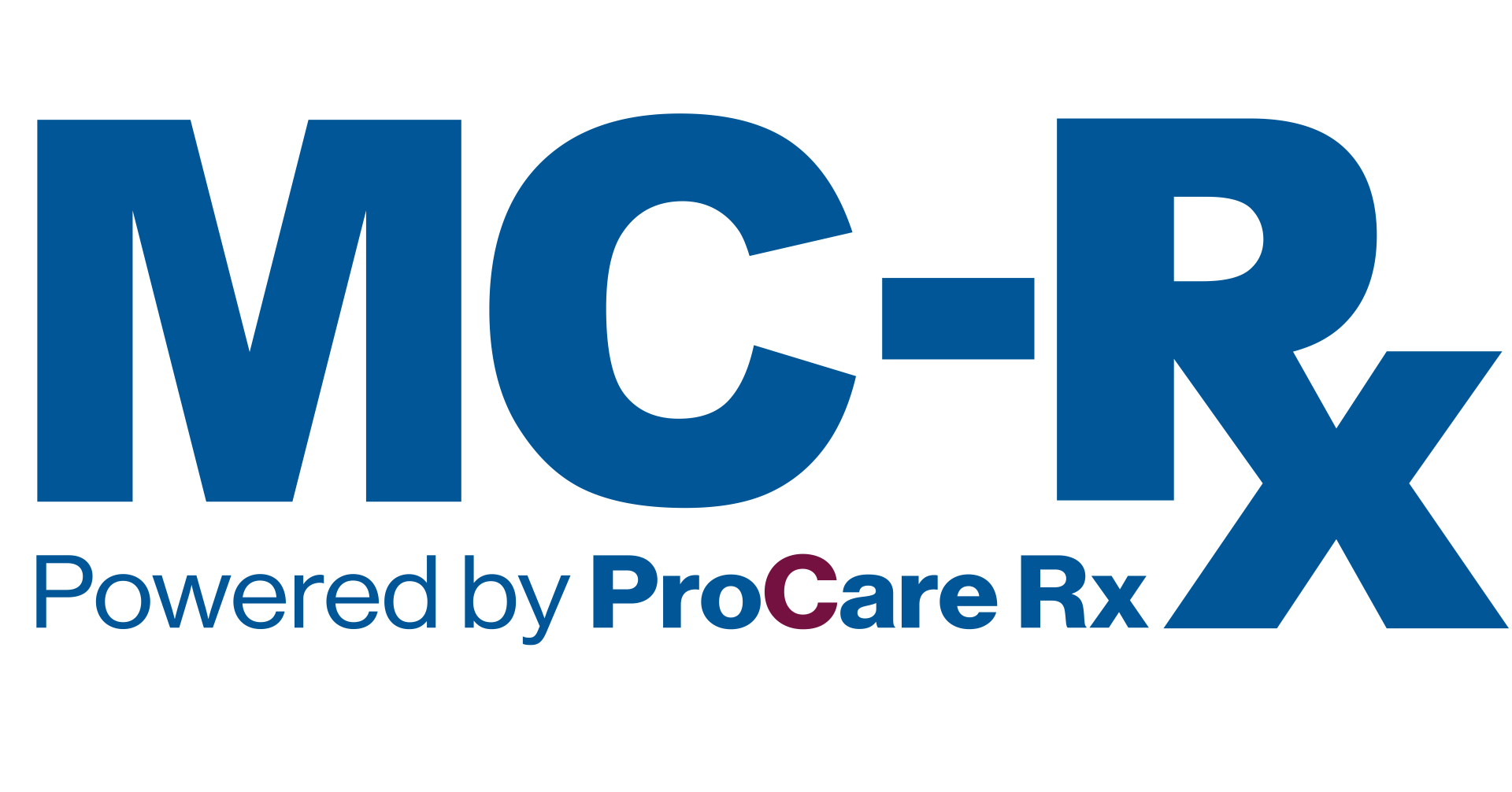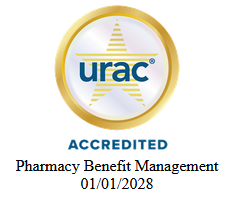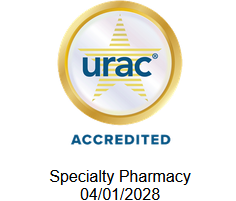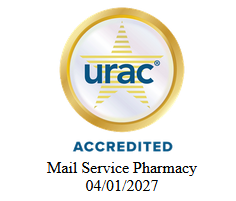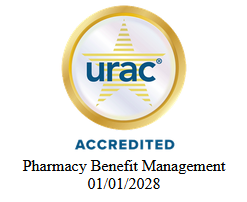Openness in Drug Pricing at the Forefront of MC-Rx Mission
November 11, 2020
In the world of pharmaceutical pricing, distrust and misinformation are rampant. Independent PBMs ProCare PBM and MC-21 recently combined, setting a new standard for transparency and openness in prescription drug pricing.
GAINESVILLE, GA, Aug. 5, 2019 -- The merger of MC-21 and ProCare PBM to form independent pharmacy benefit manager MC-Rx creates a new standard for transparency and openness in prescription drug pricing.
MC-Rx is a competitive and service-focused pharmacy benefit manager (PBM) option for businesses and insurers in the U.S. and Puerto Rico.
"MC-Rx clients have the ability to review and audit our contracts to ensure that the price we pay the pharmacy on their behalf is exactly the same price that is billed on their invoice," said LaMar Williams, executive vice president of MC-Rx. "Additionally, after each claim has been reconciled, we populate the same data in both the –pharmacy reimbursement field as provided in the billed amount to the client. This approach allows our clients to see that what we have reimbursed for their members' pharmacy claims exactly matches what we have billed."
Lowering healthcare costs is an important issue for most Americans, but the causes of high prescription drug prices are largely misunderstood.
PBMs absorb misplaced blame for drug costs in the court of public opinion. According to a study by the TPA network, many consumers view PBMs as a "black box," meaning "they know what they should do but they don't know if and how they do it" [1]. Open systems and processes as deployed by MC-Rx allow clients to not only know what the PBM should be doing but easily confirm the "ifs" and the "hows".
In January, the U.S. Department of Health and Human Services (HHS) issued a proposal to ban rebates paid by drug makers to PBMs[2]. There has been widespread concern about where the rebate money ends up. Although the rebates are supposed to be passed onto PBMs' client beneficiaries through lower premiums or out of pocket costs, they could instead be partially pocketed by the PBM themselves. Thus, even though the Trump administration abandoned this bill in early July, public skepticism about PBMs remains[3].
The HHS proposal further positioned PBMs at the forefront of the complex, multifaceted issue of prescription drug pricing. In reality, PBMs are the middlemen between drug manufacturers and pharmacies, helping to reduce prescription drug costs by:
Offering home delivery for medications;
Facilitating and creating a network of pharmacies that carry affordable and generic medications;
Communicating with drug manufacturers to negotiate rebates that secure lower prices, and;
Managing the high costs associated with specialty medications[4].
Despite these efforts by PBMs to reduce prescription drug costs, the HHS proposal included passing rebates onto consumers directly at the point of sale. After further evaluation by the Trump administration, the proposal was dropped, due in part to the statistical prediction that it could increase Medicare spending by $200 billion[5].
"A core tenet in our philosophy is lowest net cost, so we are in full agreement with the mandate to control drug spending, but also agree with the decision to seek avenues other than the recently announced drug rebate rule," Williams said. "The rule and timeline as proposed would have found many PBM's and their claims processing system vendors ill-prepared to accommodate the impact of the change. Public education and outreach to the industry leading to legislative reforms are vital and MC-Rx stands poised to be on the leading edge of advancement for these initiatives."
About MC-Rx
MC-Rx, a full-service pharmacy benefit manager (PBM) with corporate offices in Gainesville, Ga. and Caguas, Puerto Rico, focuses on transparency, best-in-class service and offering clients the "lowest net cost." MC-Rx was formed by combining two Utilization Review Accreditation Commission (URAC) certified world-class PBMs: ProCare Pharmacy Benefit Manager and MC-21. The newly formed ProCare company provides innovative computer software systems and services to various sectors of the healthcare industry. Together they have more than a half-century of industry experience, four major locations, two state-of-the-art 24/7 data and customer support centers, three software research and development centers, and more than 550 employees. By virtue of this combination, MC-Rx will have clients in all 50 states, Puerto Rico and the U.S. Virgin Islands. MC-Rx includes two affiliated mail-order and specialty pharmacies, ProCare PharmacyCare, and is one of only four PBM providers that own all of their component systems. For more information, visit http://www.mc-rx.com.
Nicholas, Richard L. "Everything You Always Wanted to Know about Pharmacy Benefit Managers." https://www.aprx.org
"Trump Administration Proposes to Lower Drug Costs by Targeting Backdoor Rebates and Encouraging Direct Discounts to Patients." Hhs.gov, 31 Jan. 2019, http://www.hhs.gov.
Lovelace, Berkeley. "Senate Panel Wants to Bring Back Drug Proposal Loved by Big Pharma in New White House-Backed Bill." CNBC.com, 25 July 2019, http://www.cnbc.com.
"What Is a PBM?" http://www.pcmanet.org, http://www.pcmanet.org/our-industry/.
Sullivan, Peter. "White House Withdraws Controversial Rule to Eliminate Drug Rebates." http://www.thehill.com, 11 July 2019

Understanding GLP-1 Medications The landscape of obesity management is evolving, with GLP-1 receptor agonist (RA) medications emerging as a significant player. These FDA-approved drugs have proven effective in helping individuals lose weight, prompting a shift in how they are viewed and covered by health plans. However, the cost implications and strategic decisions surrounding these medications require careful consideration by employer groups and their members. The Case for GLP-1 Medications GLP-1 RAs, originally developed for diabetes management, have shown remarkable efficacy in weight loss. With the growing prevalence of obesity and its associated healthcare costs, there's increasing pressure on health plans to cover these medications. Despite their high cost—annual retail pharmacy expenses can exceed $10,000 per patient—GLP-1 RAs offer potential downstream savings by reducing obesity-related comorbidities such as diabetes, hypertension, and cardiovascular disease. Balancing Coverage and Cost Historically, weight loss medications were deemed "lifestyle" drugs and excluded from coverage. However, the rising popularity of GLP-1 RAs and their demonstrated benefits are challenging this perspective. For plan sponsors, the decision to cover these medications involves balancing the high upfront costs with the potential for long-term savings on medical expenses related to obesity. Cost-Containment Strategies For payers choosing to cover GLP-1 medications, several cost-containment strategies can be employed: Formulary Management : Deciding on the placement of these medications within the formulary is crucial. Options range from not covering the drugs to placing them on a high-cost tier with patient cost-sharing. Prior Authorization and Step Therapy : Implementing these measures ensures that only patients with a proper diagnosis (e.g., ICD-10 code for obesity) access these medications, preventing misuse and overutilization. Prerequisite Programs : Requiring participation in wellness or nutrition programs before approving weight loss medications can encourage lifestyle modifications that complement pharmacological treatment. Specialist Restrictions : Limiting prescriptions to weight loss specialists, such as bariatric doctors or endocrinologists, ensures appropriate therapy and monitoring. Duration Limits : Establishing treatment guidelines, such as discontinuing medications if a target weight loss is not achieved within six months, helps manage long-term costs. The Role of Brokers and Employer Groups Brokers play a pivotal role in guiding employer groups through the complexities of covering GLP-1 medications. Understanding the cost-benefit dynamics and available cost-containment strategies enables brokers to provide informed recommendations that align with their clients' financial and health objectives. Employer groups, in turn, must weigh the potential benefits of covering these medications against their budgetary constraints and the overall well-being of their workforce. Member Education and Engagement Effective communication with members is essential to ensure they understand the coverage options and adhere to prescribed treatments. Educational initiatives can include: Patient Communication Programs : Providing information on medication adherence, compliance, and lifestyle modifications. Continuing Education : Ongoing programs to keep members informed about the benefits and proper use of weight loss medications. Monitoring and Support : Utilizing pharmacy and medical data to track outcomes and adjust strategies as needed. Balance the Scale with Expert Guidance from MC-Rx The adoption of GLP-1 medications for weight loss represents a significant advancement in obesity management. However, the high costs associated with these drugs necessitate careful planning and strategic implementation by brokers, employer groups, and members. By employing robust cost-containment strategies and prioritizing member education, health plans can navigate the financial challenges while delivering meaningful health benefits to their populations. MC-Rx, as a full-service pharmacy benefits manager, offers the expertise and tools to help clients optimize their coverage decisions and manage the complexities of incorporating GLP-1 medications into their health plans. Here are just a few of the GLP-1 strategies we use to shield our clients from excessive costs: Implementation of Drug Management Tools, which is critical to ensure proper utilization for GLP-1s. Strategic Benefit Design, which also protects clients from improper GLP-1 utilization. Clear Member Communication, which is crucial for proper adherence and compliance. When implemented with an existing client, the above-listed strategies helped them achieve $382,000 in cost avoidance for GLP-1s. With the right approach, the benefits of these medications can be realized, contributing to better health outcomes and potentially lowering overall healthcare costs in the long run. For more information on managing GLP-1 medications and other pharmacy benefits, reach out to an MC-Rx expert today .


